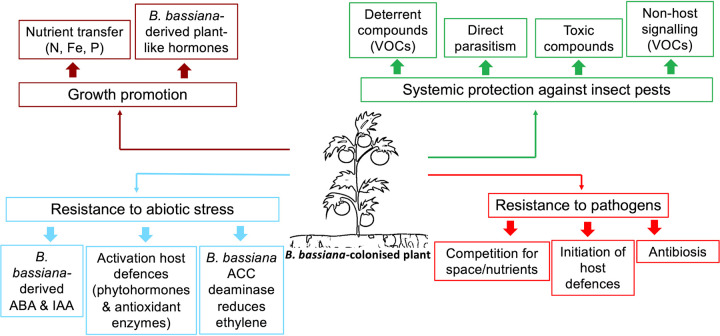FIG 2.
Proposed mechanisms mediating the benefits of plant-Beauveria bassiana association. Growth promotion (brown boxes): enhanced nutrient transfer, for example, nitrogen (N), phosphorus (P), and iron (Fe) (13, 14), could reduce fertilizer usage, offering savings and reducing greenhouse emissions. Resistance to insect pests and pathogens (green and red boxes) could reduce the need for fungicide and insecticide use, thereby alleviating their environmental and health burdens. B. bassiana may increase plant tolerance to abiotic stresses (blue boxes) via the activation of host stress responses and the production of antioxidant enzymes (15). Osmotic stress upregulates the levels of abscisic acid (ABA), auxin (indole-3-acetic-acid [IAA]), and ethylene, mediating stomatal closure, expression of stress resistance genes, and production of antioxidant enzymes (16, 17). ACC (aminocyclopropane-1-carboxylic) deaminase regulates excessive ethylene levels in plants by cleaving the ethylene precursor ACC into ammonia and α-ketobutyrate, preventing arrested plant growth, chlorosis, senescence, and death (18). VOCs, volatile organic compounds.

